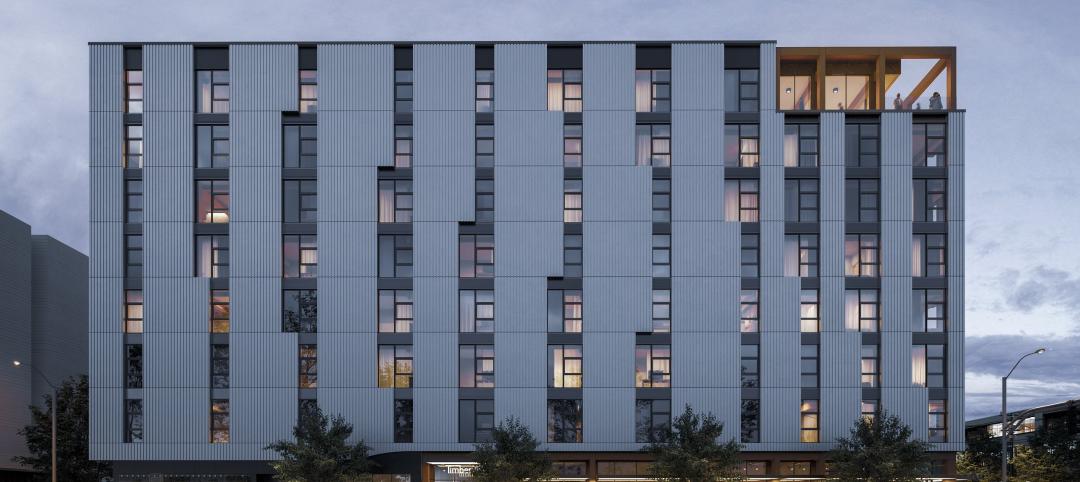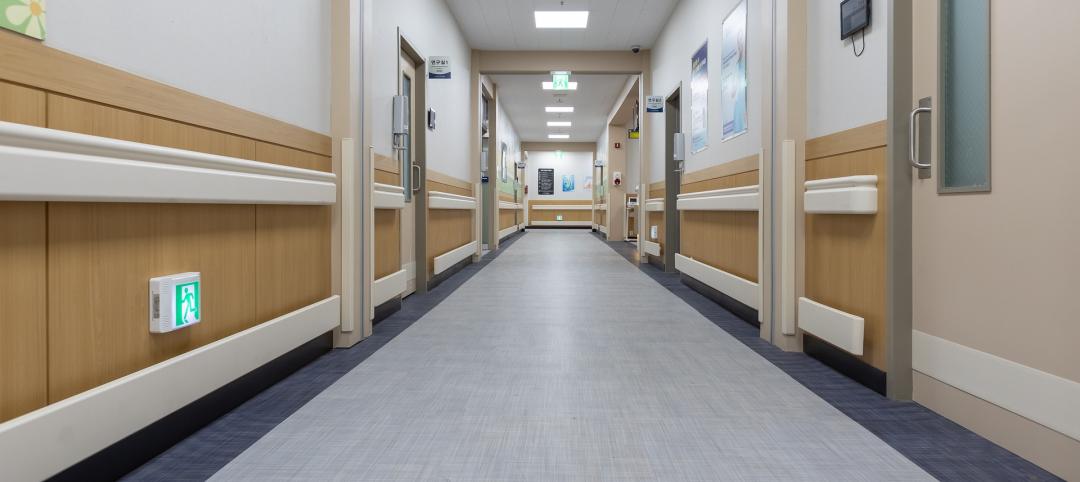At the 2015 Annual Business Meeting of the National Council of Architectural Registration Boards (NCARB), Member Boards agreed on Saturday to discontinue the current Broadly Experienced Foreign Architect (BEFA) Program in favor of a simplified alternative for receiving an NCARB Certificate.
The change, effective July 1, 2016, will optimize the process for foreign architects who are licensed but do not currently meet the requirements for the NCARB Certificate. This credential facilitates licensure among jurisdictions and signifies that an architect has met national standards for licensure established by registration boards.
“We wanted to remove some of the unnecessary financial and administrative impediments for this group by refocusing on the nationally accepted standards for licensure." —Dale McKinney, NCARB President
The new alternative for foreign licensees will replace the current BEFA Program’s requirements, eliminating the committee dossier review and the need to document seven years of credentialed practice in a foreign country. Instead, foreign architects will be required to document completion of the Intern Development Program (IDP) experience requirements and successfully complete the Architect Registration Examination (ARE) to obtain NCARB certification.
“NCARB Certification provides an important career advantage, opening up future job opportunities throughout the U.S. and providing free online continuing education,” said NCARB President Dale McKinney, FAIA, NCARB. “We wanted to remove some of the unnecessary financial and administrative impediments for this group by refocusing on the nationally accepted standards for licensure.
“By imposing the same experience and examination criteria on foreign architects as we do in U.S. architect candidates for certification, we address knowledge of U.S. codes and facility with English as the primary U.S. language,” McKinney added. “The new alternative will be more automated, increasing objectivity and helping reduce fees associated with the dossier and interview requirements.”
In other Annual Business Meeting action, a new alternative to the Broadly Experienced Architect (BEA) program fell one vote shy of getting the 28 votes needed by the Member Boards to discontinue the BEA in favor of a more simplified alternative for architects seeking an NCARB Certificate when they do not have a degree from a program accredited by the National Architectural Accrediting Board (NAAB).
The new requirements for the education alternative for certification would have required five years of post-licensure practice for all licensees without accredited education. It would also have required twice the IDP requirements for work experience for architects with a pre-professional architectural degree, and five times the IDP requirements for those with anything less than a pre-professional architectural degree.
“The split in our membership shows the proposal needs more work,” said NCARB CEO Michael Armstrong. “Our board will apply feedback from the membership toward a remodeled alternative and come back next year with a proposal that will try to capture the blend of rigor, inclusion and ease of use that is acceptable to a majority of our members.”
Related Stories
Government Buildings | May 10, 2024
New federal buildings must be all-electric by 2030
A new Biden Administration rule bans the use of fossil fuels in new federal buildings beginning in 2030. The announcement came despite longstanding opposition to the rule by the natural gas industry.
Sustainable Development | May 10, 2024
Nature as the city: Why it’s time for a new framework to guide development
NBBJ leaders Jonathan Ward and Margaret Montgomery explore five inspirational ideas they are actively integrating into projects to ensure more healthy, natural cities.
Mass Timber | May 8, 2024
Portland's Timberview VIII mass timber multifamily development will offer more than 100 affordable units
An eight-story, 72,000-sf mass timber apartment building in Portland, Ore., topped out this winter and will soon offer over 100 affordable units. The structure is the tallest affordable housing mass timber building and the first Type IV-C affordable housing building in the city.
Architects | May 8, 2024
Ivan O’Garro, AIA joins LEO A DALY as a vice president
Integrated design firm LEO A DALY welcomes Ivan O’Garro, AIA, as a vice president and managing principal of its Atlanta studio.
K-12 Schools | May 7, 2024
World's first K-12 school to achieve both LEED for Schools Platinum and WELL Platinum
A new K-12 school in Washington, D.C., is the first school in the world to achieve both LEED for Schools Platinum and WELL Platinum, according to its architect, Perkins Eastman. The John Lewis Elementary School is also the first school in the District of Columbia designed to achieve net-zero energy (NZE).
Healthcare Facilities | May 6, 2024
Hospital construction costs for 2024
Data from Gordian breaks down the average cost per square foot for a three-story hospital across 10 U.S. cities.
Biophilic Design | May 6, 2024
The benefits of biophilic design in the built environment
Biophilic design in the built environment supports the health and wellbeing of individuals, as they spend most of their time indoors.
MFPRO+ Special Reports | May 6, 2024
Top 10 trends in affordable housing
Among affordable housing developers today, there’s one commonality tying projects together: uncertainty. AEC firms share their latest insights and philosophies on the future of affordable housing in BD+C's 2023 Multifamily Annual Report.
Retail Centers | May 3, 2024
Outside Las Vegas, two unused office buildings will be turned into an open-air retail development
In Henderson, Nev., a city roughly 15 miles southeast of Las Vegas, 100,000 sf of unused office space will be turned into an open-air retail development called The Cliff. The $30 million adaptive reuse development will convert the site’s two office buildings into a destination for retail stores, chef-driven restaurants, and community entertainment.
Codes and Standards | May 3, 2024
New York City considering bill to prevent building collapses
The New York City Council is considering a proposed law with the goal of preventing building collapses. The Billingsley Structural Integrity Act is a response to the collapse of 1915 Billingsley Terrace in the Bronx last December.

















